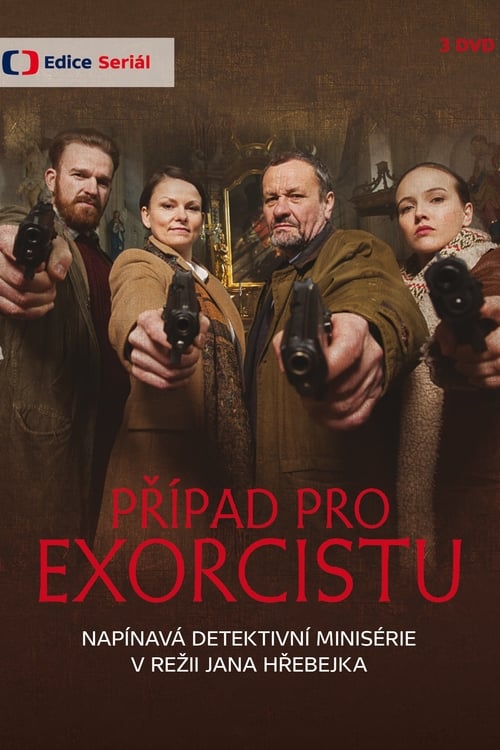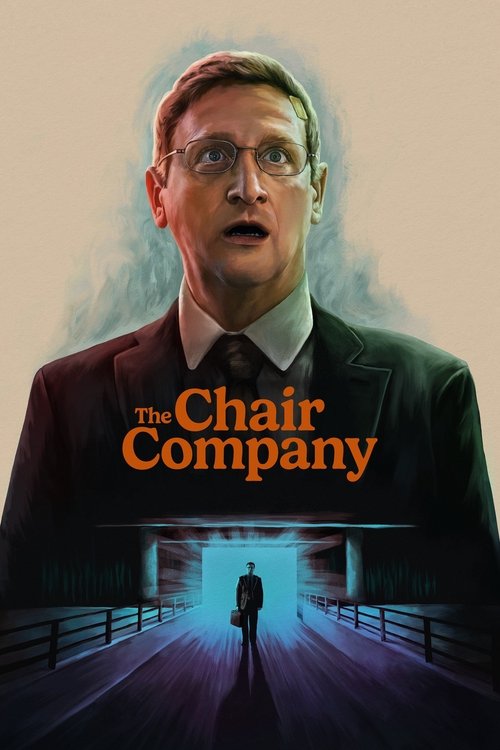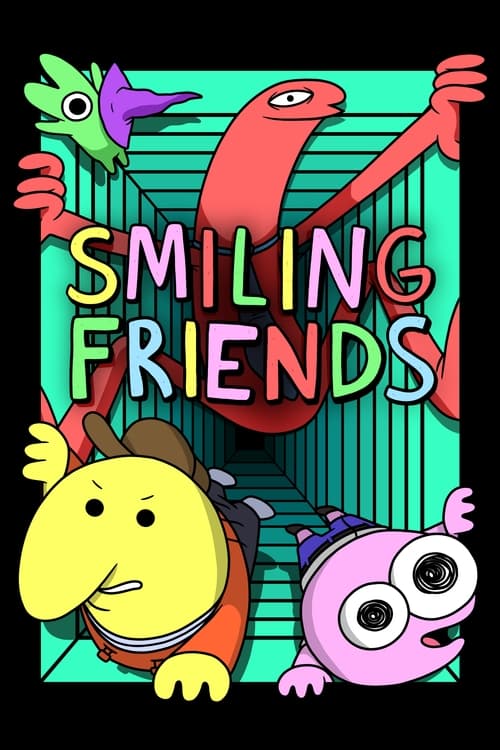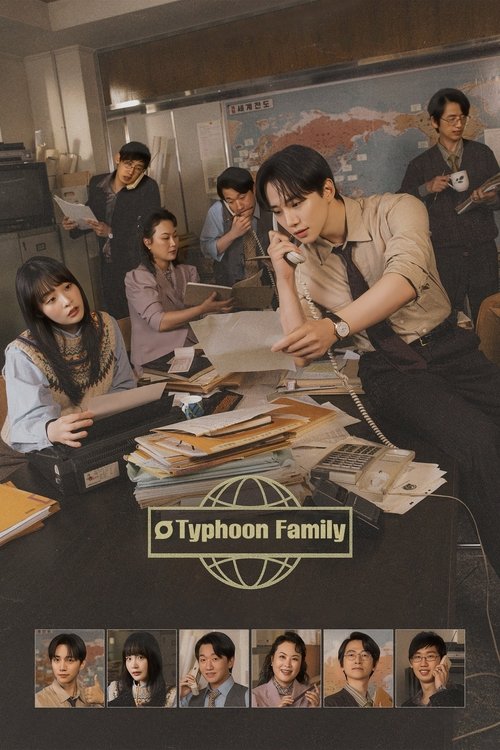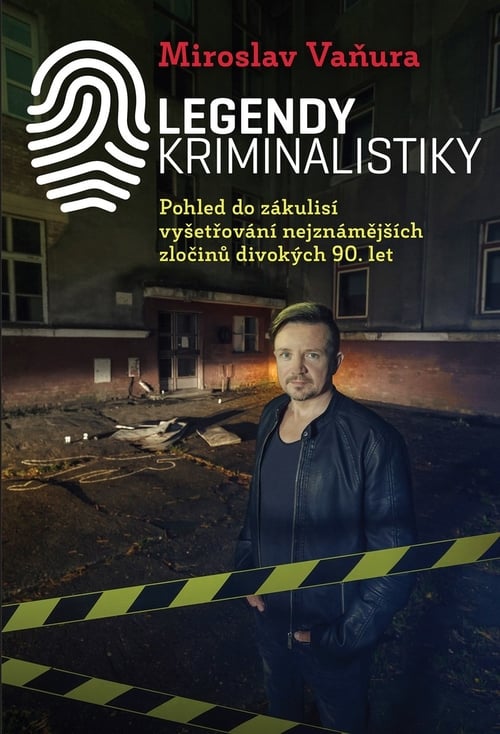
Ask Your Own Question
What is the plot?
In "Episode 3" of "Příběhy českých zločinů," the story begins with a chilling scene set in a small Czech town, where the tranquility is shattered by the discovery of a body in a nearby forest. The victim is a young woman, and her death sends shockwaves through the community. The local police are called to the scene, and the lead investigator, Detective Novák, arrives to assess the situation. He examines the body, noting the signs of a struggle, which suggests that this was not a random act of violence.
As the investigation unfolds, Detective Novák interviews the victim's friends and family. They describe her as a vibrant and outgoing person, but they also reveal that she had recently been involved in a tumultuous relationship. This information leads Novák to focus on the victim's boyfriend, who becomes a person of interest. The boyfriend, visibly distraught, claims he was with friends at the time of the murder, but his alibi is shaky. Novák senses that there is more to the story and decides to dig deeper.
The narrative shifts to the boyfriend's perspective, revealing his internal turmoil. He grapples with guilt and fear, haunted by the possibility that he may have inadvertently contributed to her death. As the police continue their investigation, they uncover evidence that suggests the victim had been receiving threatening messages prior to her death. This revelation adds a new layer of complexity to the case, prompting Novák to explore the possibility of a stalker.
In a pivotal scene, Detective Novák and his team conduct a search of the victim's apartment. They find her personal belongings scattered about, and among them, they discover a hidden diary. The diary contains entries that detail her fears and suspicions about someone following her. This discovery leads Novák to believe that the killer may be someone from her past, someone she had tried to distance herself from.
As the investigation progresses, tensions rise within the community. Rumors spread, and the townspeople become increasingly anxious, fearing that a murderer is among them. Detective Novák holds a press conference to reassure the public and to urge anyone with information to come forward. The pressure mounts as the media begins to cover the story extensively, and Novák feels the weight of the community's expectations on his shoulders.
In a dramatic turn of events, a witness comes forward claiming to have seen a suspicious figure near the crime scene on the night of the murder. This leads Novák to a new suspect, a man with a history of violence who had been living in the area. The police track him down, and a tense confrontation ensues. The suspect initially denies any involvement but eventually breaks down under pressure, revealing that he had been in the area but insists he did not kill the victim.
The episode reaches its climax when Detective Novák pieces together the timeline of events leading up to the murder. He realizes that the boyfriend's alibi does not hold up, as he had the opportunity to commit the crime. In a gripping confrontation, Novák confronts the boyfriend, who finally admits to a heated argument that escalated out of control. Overcome with emotion, he confesses that he did not mean to kill her but acted in a moment of rage.
The episode concludes with the aftermath of the confession. The boyfriend is taken into custody, and the community grapples with the tragic loss of the young woman. Detective Novák reflects on the case, feeling a mix of relief and sorrow as he contemplates the impact of violence on the lives of those left behind. The screen fades to black, leaving the audience with a haunting sense of the fragility of life and the consequences of unchecked emotions.
Related Titles
Browse All Titles →What is the ending?
In the ending of "Příběhy českých zločinů," Season 1, Episode 3, the investigation reaches a climax as the detectives uncover the truth behind the crime. The main suspect is apprehended, revealing the motivations that led to the tragic events. The episode concludes with a sense of resolution, but also leaves lingering questions about morality and justice.
As the episode unfolds towards its conclusion, the tension escalates. The detectives, having pieced together various clues, gather in a dimly lit interrogation room. The atmosphere is thick with anticipation as they prepare to confront the main suspect, whose demeanor oscillates between defiance and fear. The camera captures the sweat beading on his forehead, a physical manifestation of his internal struggle.
In a pivotal scene, the lead detective lays out the evidence meticulously, each piece a thread in the intricate tapestry of the case. The suspect's facade begins to crack under the weight of the accusations. Flashbacks intersperse the interrogation, revealing moments from the past that illuminate the suspect's motivations--jealousy, betrayal, and a desperate need for validation. The emotional turmoil is palpable, as the suspect's eyes dart around the room, searching for an escape from the truth.
As the detectives press on, the suspect finally breaks down, confessing to the crime. His voice trembles, and tears stream down his face as he recounts the events that led to the tragic outcome. The camera zooms in on his trembling hands, a stark contrast to the bravado he initially displayed. This moment of vulnerability highlights the complexity of human emotions and the consequences of one's actions.
The episode concludes with the detectives reflecting on the case. They stand outside the police station, the night air heavy with unspoken thoughts. The lead detective gazes into the distance, contemplating the fragility of life and the choices that lead individuals down dark paths. The screen fades to black, leaving viewers with a haunting sense of the moral dilemmas faced by the characters.
In the aftermath, the main suspect is taken into custody, facing the legal repercussions of his actions. The detectives, though satisfied with the resolution, are left grappling with the emotional weight of the case. Each character is left to ponder their own beliefs about justice and redemption, setting the stage for deeper reflections on the nature of crime and its impact on society.
Is there a post-credit scene?
In "Episode 3" of "Příběhy českých zločinů," there is no post-credit scene. The episode concludes without any additional content after the credits roll, focusing instead on wrapping up the narrative and leaving the audience with the emotional weight of the story presented. The episode's conclusion emphasizes the themes of justice and the impact of crime on individuals and society, leaving viewers to reflect on the events that unfolded.
What crime is central to the plot of Episode 3?
The central crime in Episode 3 revolves around a mysterious murder that takes place in a small town, where the investigation uncovers dark secrets and hidden motives among the townspeople.
Who are the main characters involved in the investigation in Episode 3?
The main characters involved in the investigation include the lead detective, who is determined and methodical, and a local journalist who seeks to uncover the truth, often clashing with the authorities.
What are the key clues that lead to the resolution of the crime in Episode 3?
Key clues include a series of cryptic messages found at the crime scene, witness testimonies that reveal conflicting alibis, and a hidden relationship between the victim and a suspect that ultimately leads to the breakthrough in the case.
How does the community react to the murder in Episode 3?
The community reacts with shock and fear, as the murder disrupts the small-town tranquility, leading to suspicion among neighbors and a growing sense of paranoia that affects their daily lives.
What internal conflicts do the characters face in Episode 3?
Characters face internal conflicts such as the detective grappling with the pressure of solving the case while dealing with personal demons, and the journalist struggling with ethical dilemmas about revealing sensitive information that could harm innocent people.
Is this family friendly?
"Příběhy českých zločinů," particularly in episode 3, delves into themes of crime and moral ambiguity, which may not be suitable for younger audiences or sensitive viewers. Here are some potentially objectionable aspects:
- Violence: The episode may depict scenes of crime that include physical altercations or threats, which could be distressing.
- Murder: The central theme revolves around criminal acts, including murder, which is explored in a detailed manner.
- Emotional Distress: Characters may experience intense emotional turmoil, including grief, fear, and anxiety, which could be unsettling.
- Dark Themes: The narrative explores the darker sides of human nature and societal issues, which may be heavy for younger viewers.
- Crime Investigation: Scenes involving police investigations may include discussions of evidence and criminal behavior that could be inappropriate for children.
Overall, the episode's focus on crime and its consequences may not align with family-friendly content.



